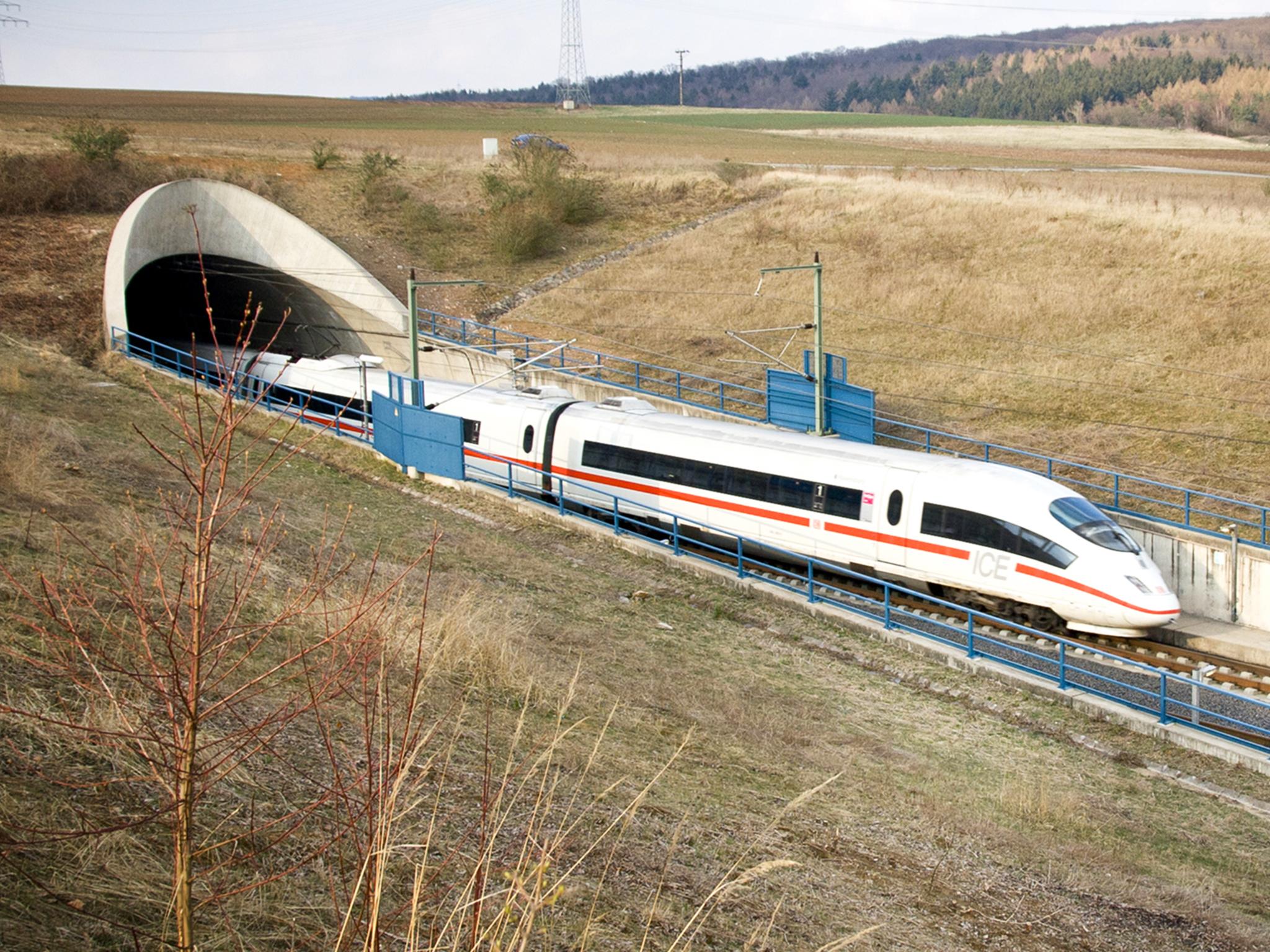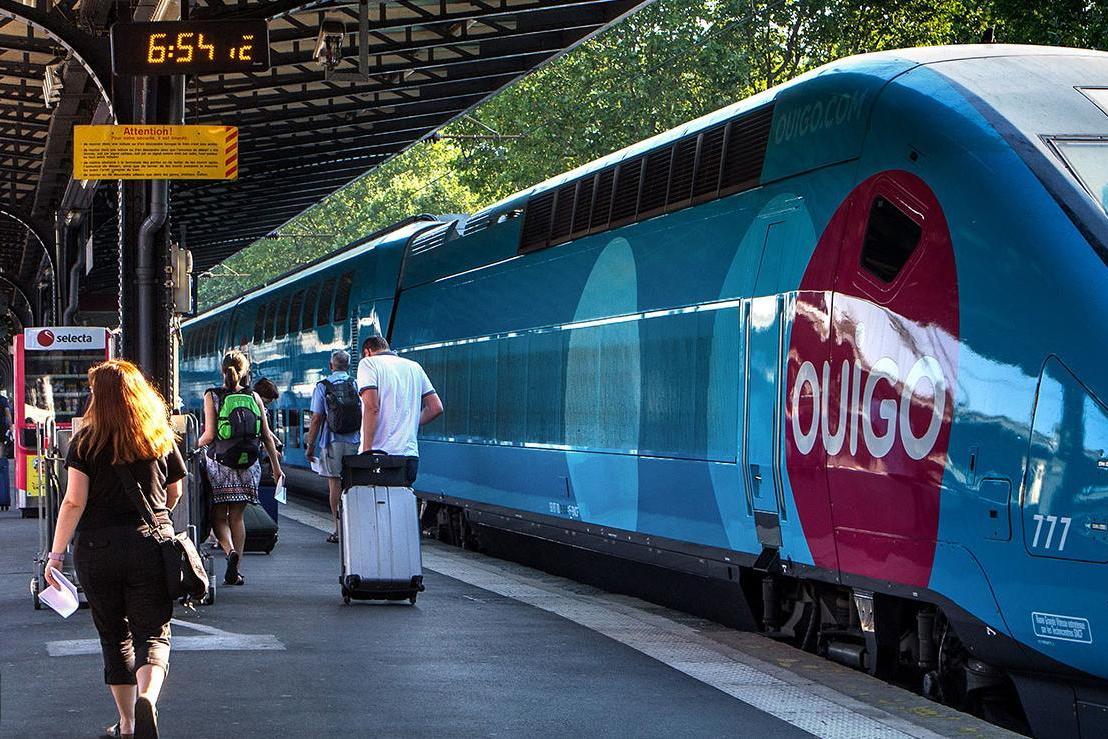Do EU rules stop Britain re-nationalising its railways? It depends what you mean by 'nationalise'
Planes, Trains and Autobahns: Public ownership of railways has become a totemic issue on the left

One sub-plot of Brexit is the running argument about whether membership of the EU – or its single market – prevents Britain from nationalising its railways.
Public ownership of rail has become a totemic policy for the left, and the wider public has never accepted privatisation either: 60 per cent of voters support re-nationalisation, compared to just 25 per cent who are opposed, according to YouGov.
Some left-wingers are concerned that EU restrictions on state intervention limit the government’s ability to renationalise, while Remainers point out that publicly-owned rail is the norm in most of continental Europe.
The situation is actually quite complicated, and both sides in this argument have had a tendency to gloss over inconvenient facts: here I will try to explain what the EU rules mean in practice.
The first thing to say is that EU membership, clearly, does not prevent you having a state-owned national railway company. This is because the UK is the only major member state where one of these doesn't operate the vast majority of services.
From France to Portugal, Spain to Germany, Italy to Poland, passenger rail is overwhelmingly run by the country's respective version of British Rail. Unlike in the UK, these were never privatised and broken up.
The suggestion that EU state aid rules would prevent you from subsidising these companies is also wrong: Article 93 of the EU's treaty specifically exempts "the coordination of transport" from state aid regulations.
EU member states make great use of this exemption: ticket prices can be absurdly low, especially for commuters. In Belgium, where I live, train tickets are practically given away for free: a weekend six-hour round trip between Brussels and Arlon can be bought on the day for £19 return. For those over 65, there's a flat charge of £6 for a return ticket anywhere in the country.
Other EU countries are going further: Luxembourg subsidises its railways so much that it has decided there is no point in even bothering to collect fares anymore, and from the beginning of 2020 it's just going to make all of its public transport free, for everyone.
So EU rules do not prevent you having a public railway company, or from subsidising it to whatever absurd degree you fancy. But it's important to be clear what restrictions the EU does place on member states' railways: or to be precise, what restrictions it will place on them.
This is because the situation in the EU is changing: in 2016 the bloc approved a package of legislation called the Fourth Rail Package, which will come into force from 2023. This includes a series of new rules whose intention is to bring the private sector and market competition into the railways. Looking at the situation in member states now might not be a very good guide to what they will look like in a few years' time.

The Fourth Rail Package doesn't break up or privatise the existing public railway companies like the UK did with British Rail: but it effectively forces member states to replace some of their routes with privately operated ones, even when they don't really want to. The thinking behind the legislation is really the same as the privatisation of the UK railways: that involving the private sector will somehow subject operators to competitive pressure and improve services, or increase efficiency and reduce the subsidy needed. (British passengers may have a view on whether this is an effective approach.)
Under the Fourth Rail Package, subsidised routes will have to be put out to open tender, and private companies be allowed to bid for them in a commercial process. The existing state incumbents will also be able to bid – and in many cases they will win; in others, they will not. In some circumstances governments will still be allowed to “direct award” smaller contracts to the public companies, but only if they set binding targets on punctuality and passenger satisfaction. If the targets are missed for any reason at all, the contract must be opened up to the private sector.
Something like the public tenders set to become the norm in Europe are currently standard for rail franchises in the UK: they're not really market competition, just civil servants picking between different bids. Whether a company wins a contract does not really seem to come down to how good they are at running a railway, but rather how good they are at bidding for things – franchises in the UK have repeatedly failed to deliver on their promises and collapsed early, to be bailed out by the state.
The main difference between the current situation in the UK and the situation that is unfolding in Europe is that these countries will, mostly, continue to have a state rail company, bidding for contracts against other private companies. The hope is that the prospect of losing these contracts will force state incumbents to up their game and do a better job, but they will likely run a dwindling number of services among a growing patchwork of operators.
This is the situation, whether you think it is good thing or bad thing. A UK government committed to public ownership for the whole railway could perhaps try and ignore the regulations, facing down Brussels – though as our experience with Brexit shows, we're not very good at that. Going rogue would also leave the government open to being taken to the European Court of Justice by private companies angry that they are missing out on lucrative contracts; it could also face infringement action from the Commission. Alternatively, the UK could work to try and change the EU’s rules – though it would be swimming against a very powerful tide.
As they stand, EU rules certainly do not mandate the UK’s railways being as privately operated as they are now, and they probably never will. But in practice, the latest regulations will make it impossible to get rid of private operators entirely. In short, it would be possible to recreate British Rail, but not to have it running the whole system in the way it did before privatisation. Ultimately, the answer to whether EU rules stop Britain nationalising its railways is: it depends on what you mean by nationalising them.
Join our commenting forum
Join thought-provoking conversations, follow other Independent readers and see their replies
Comments
Bookmark popover
Removed from bookmarks